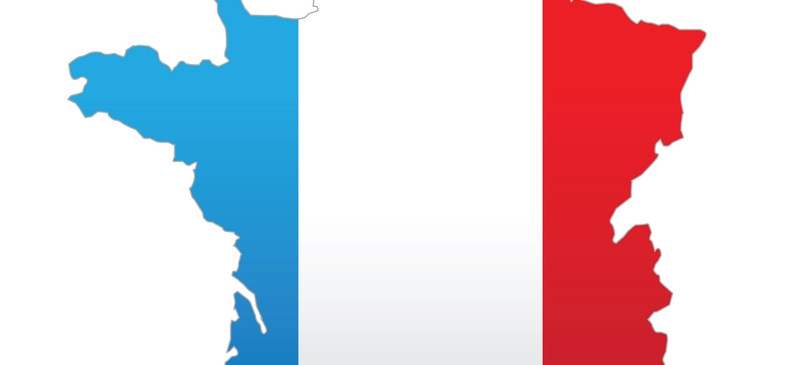
Nicolas Sarkozy: Turkophobe and protectionist?
Nicolas Sarkozy: Turkophobe and protectionist?
By Charles Grant
Most EU governments wanted Nicolas Sarkozy to win the presidential election. They think his liberalising economic agenda stands a fair chance of boosting France’s lacklustre economic performance. And they believe that his support for a ‘mini-treaty’ will make it easier for Chancellor Angela Merkel to get the whole EU behind her plans for an ‘amending treaty’ that would save parts of constitutional treaty. Furthermore, several governments – including that in London – are particularly happy that Sarkozy says he will not hold a referendum on any new EU treaty, since that diminishes the pressure on them to hold referendums of their own.
However, on two subjects Sarkozy worries other European governments: Turkey and protectionism. He has made his opposition to Turkish membership of the EU very clear, suggesting that instead it could join a ‘Mediterranean Union’. Most European leaders – including Merkel, who is no fan of Turkish membership – believe it crucial to maintain the process of Turkish accession, whatever its long-term outcome. They would echo what Ségolène Royal had the courage to remark during her TV duel with Sarkozy, namely that to slam the door in Turkey’s face could destabilise the country’s fragile democracy. An end to the accession talks would certainly strengthen the authoritarian Turkish nationalists who oppose closer ties with the EU.
I have no doubt that leaders such as Merkel, Tony Blair, José Manuel Barroso and George Bush will all ask Sarkozy to moderate his line on Turkey. They will tell him: by all means say you will oppose Turkish membership, if and when the accession talks conclude; but for the time being let the talks continue, for they play an important role in promoting economic and political reform in Turkey.
Sarkozy could disregard that advice, and give greater priority to his domestic opinion poll ratings, in which case his election would be very bad news for Turkey. But he might well think it in his self-interest to avoid annoying a group of the world’s most influential leaders, with whom he will have to work on many other subjects. So I would not be surprised if he lets the accession talks continue. If he does, the Turks may even – one day – welcome his coming to power. That is because he offers a real prospect of reviving the French economy. And I don’t believe the French will ever vote in referendums in favour of new EU members, so long as they feel insecure about their future, threatened by unemployment, and hostile to globalisation. Sarkozy offers France at least a chance of breaking out of its vicious circle of slow growth, introspection and lack of confidence.
The other worry about Sarkozy is the apparent contradiction in his thinking. He supports Thatcherite policies at home – he promises to slim the state, cut taxes and liberalise labour markets – but attacks the Commission’s trade and competition policies, as well as the monetary policy of the European Central Bank. In his first speech as president-elect, he asked France’s partners “to hear the voice of the peoples who want to be protected”. In his recent book, I was struck by his vehement opposition to the foreign ownership of French companies (for my review of this book in Prospect, see http://www.cer.org.uk/articles/grant_prospect_march07.html). I suspect that his support for economic autarky reflects what he really thinks, and that he does not say it merely to win votes. But its impact on voters should not be ignored. As Jean Pisani-Ferry of the Bruegel think-tank notes, “In a country where 55% of voters rejected the EU constitution on economic grounds and more than 70% see globalisation as a threat, a sure recipe for losing support is to wear the clothes of the Brussels-Frankfurt orthodoxy.” (See http://www.eurointelligence.com/article.581+M5c348ce2a46.0.html.)
If Sarkozy does try to combine economic liberalism at home with protectionism at EU level, he will be heading for a big clash with his EU partners – most of whom support the EU’s broadly liberal trade and competition policies. However, as with the case of Turkey, his astute understanding of power-politics, and his strong desire to be an influential European leader, may moderate his hostility to the Brussels orthodoxy. If he wants other EU leaders to do him favours on issues that matter to France – and he will – he will have to learn to play the European game. And that means treating the Commission and its policies with some respect.
Furthermore, Sarkozy is unlikely to share Chirac’s visceral hostility to reform of EU farm policy – Chirac had been a farm minister and prided himself on his rural roots, which Sarkozy does not have. In any case, whatever Sarkozy’s own views on foreign investment and foreign trade, if he succeeds in reviving the French economy, the pressure from French voters for protectionism will dwindle.
Charles Grant is director of the Centre for European Reform.
